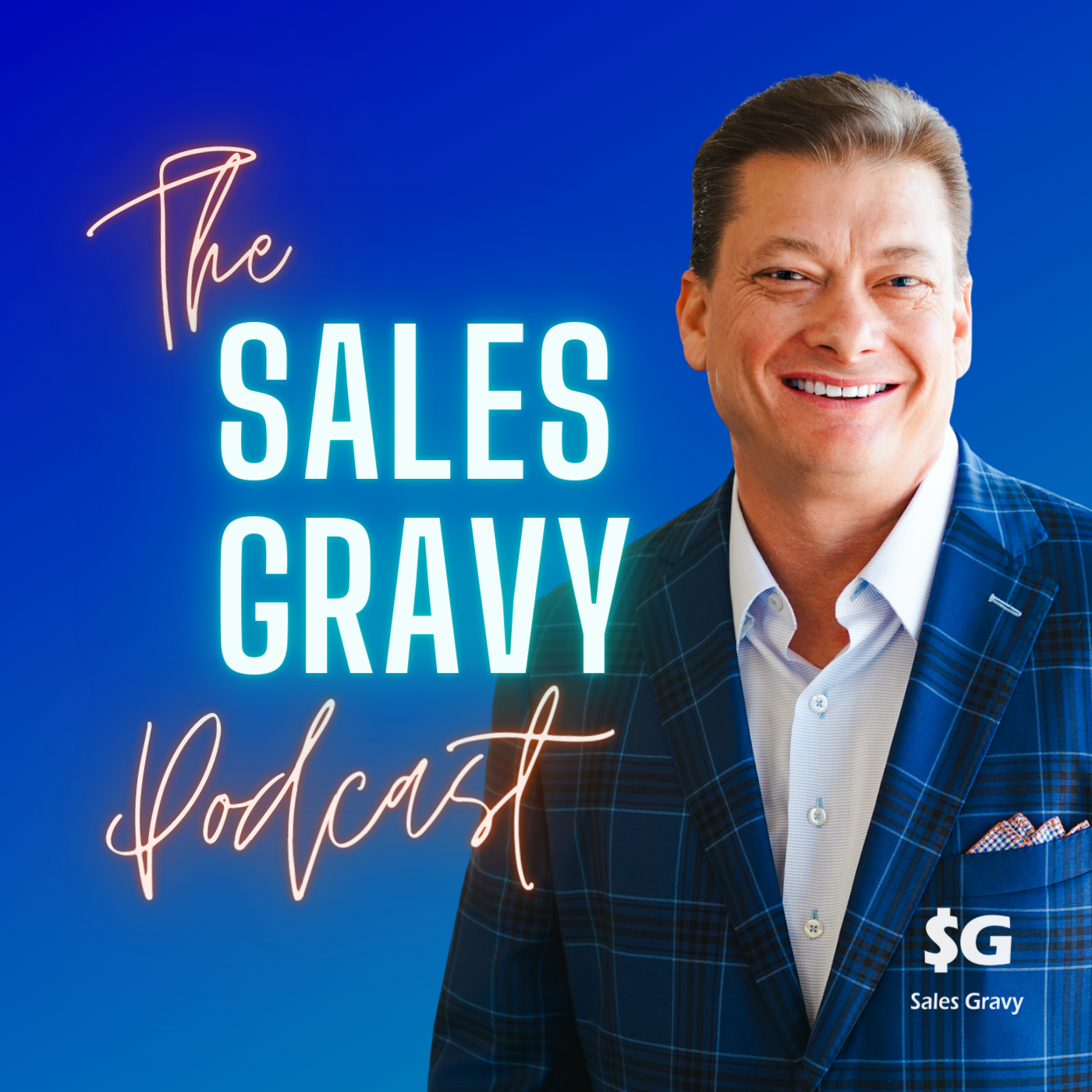

Sales Gravy: Jeb Blount
Jeb Blount
From the author of Fanatical Prospecting and the company that re-invented sales training, the Sales Gravy Podcast helps you win bigger, sell better, elevate your game, and make more money fast.
Episodes
Mentioned books

50 snips
Sep 16, 2025 • 14min
Sales Prospecting Sequences and ZoomInfo: Buy or Die Without Burning Bridges (Ask Jeb)
Will Frattini, a key player in scaling ZoomInfo from $10 million to $1.2 billion, dives into the balancing act of sales prospecting. He addresses the 'buy or die' mentality, emphasizing that persistence shouldn't equal annoyance. Frattini advocates for tailored outreach strategies based on deal complexity, urging sellers to know when to push and when to step back. He also shares tips on utilizing AI for personalized messaging, letting sales professionals engage meaningfully with clients while preserving future opportunities.

10 snips
Sep 15, 2025 • 12min
How Charlie Kirk Disagreed Is More Important Than What He Believed
The podcast delves into the tragic assassination of Charlie Kirk, prompting a deep reflection on the state of civil discourse. The speaker emphasizes the need for empathy in disagreement, urging listeners to engage in respectful dialogue despite differing beliefs. By promoting the value of diverse opinions, the discussion highlights how meaningful debate can foster compromise and understanding. Ultimately, it’s a powerful reminder of our shared humanity and the importance of treating each other with kindness, regardless of differences.

35 snips
Sep 11, 2025 • 37min
The One-Question Revolution That Transforms Sales Discovery
Lorenzo Bizzi, a Professor at Cal State Fullerton and author of Myths vs. Science of Selling, reveals groundbreaking insights into effective sales discovery. He emphasizes that buyer uncertainty hinders deals and that traditional tactics often worsen this issue. Instead of rigid questions, he champions a simple yet powerful inquiry: 'Tell me what’s going on with your team?' This approach fosters clarity and trust, allowing buyers to articulate their needs. Bizzi also discusses the evolving role of empathy and trust in sales, marking a shift from outdated techniques.

10 snips
Sep 9, 2025 • 20min
How Emotional Regulation Impacts Sales Performance (Ask Jeb)
Emotional regulation might be the key to unlocking your sales team's true potential. Discover how unmanaged emotions can derail even the most skilled professionals, leading them to make regrettable decisions. Explore practical strategies to create a supportive and productive environment, enhancing focus and consistency. Learn about the importance of having a clear purpose, grounding decisions in personal values, and maintaining discipline, even in tough selling situations. Harnessing emotions effectively can transform your team's performance and morale.

20 snips
Sep 4, 2025 • 32min
How to Turn Podcast Interviews Into a Sales Lead Machine
Molly Ruland, CEO and founder of Heartcast Media, is an expert in leveraging digital content for business growth. In this discussion, she reveals how top sales performers generate qualified leads through strategic podcast appearances, turning interviews into lead-generation opportunities. Rather than chasing clients with cold calls, Ruland emphasizes the importance of authentic connections and using podcasts to build credibility. She also shares insights on creating engaging content, the evolution of podcasting, and the necessity of nurturing genuine relationships for long-term success.

16 snips
Sep 2, 2025 • 9min
How to Overcome Sales Burnout and Stop Crashing During Long Days (Ask Jeb)
Burnout in sales is real, and skipping meals is a major culprit! Discover how poor fuel can lead to energy crashes and diminished focus. With personal anecdotes from professionals, learn effective strategies for meal prep and healthy snacks to keep performance sharp. The discussion also highlights the stress of constant Zoom meetings and emphasizes the need for breaks and genuine connections for mental recovery. Get ready to revitalize your sales game!

Aug 29, 2025 • 23min
5 Sales Leadership Skills You Can’t Fake
Duff Tucker, a seasoned sales trainer with over 25 years of experience, shares invaluable insights on effective sales leadership. He emphasizes that clear communication is essential to avoid confusion and set expectations. Tucker also highlights the importance of modeling behaviors and fostering an environment where team members learn from failures. Innovative methods of recognition are discussed, showcasing how celebrating team successes can boost morale. Ultimately, strong leadership not only drives performance but also cultivates a culture of collaboration and growth.

Aug 26, 2025 • 19min
5 Ways to Stop Sales Territory Disputes From Destroying Your Team (Ask Jeb)
Sales territory disputes can turn teams into lone wolves, damaging collaboration and focus. The podcast explores how overlapping territories lead to unhealthy competition among sales reps. Strategies like commission splitting and upfront agreements are discussed to foster teamwork. It highlights the importance of relationship management, particularly in homeowner associations, in mitigating conflicts. Effective sales leadership is essential, emphasizing proactive engagement and establishing defined roles to promote a positive culture.

9 snips
Aug 22, 2025 • 40min
Stop Mistaking Sales Activity Motion For Pipeline Momentum
Ron Karr, author of Velocity Mindset and a global keynote speaker, emphasizes the importance of purposeful activity in sales over mere busyness. He shares insights on how many salespeople mistake motion for momentum, highlighting that activity without clear direction leads to stagnation. Karr also discusses the psychological aspects of sales, including the role of hormones like cortisol and oxytocin in building trust. Listeners will learn about the 'pause method' to enhance emotional intelligence and engage clients more effectively.

6 snips
Aug 20, 2025 • 21min
Why Cultural Intelligence Beats Language Skills in International Sales (Ask Jeb)
Explore how cultural intelligence can outshine language skills in international sales. A recent college graduate shares his challenge of connecting with Spanish students while teaching English. Discover the universal principles of influence that can win over any audience, regardless of cultural differences. Learn how storytelling and understanding emotional intelligence can enhance relationships in diverse settings. The conversation shifts from language teaching to mastering authentic connections that truly drive success in global sales.


